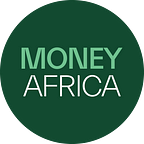Inflation Rate Reduces by 0.05% points Between March and April 2021
On Monday 17 May 2021, the National Bureau of Statistics released inflation numbers for April 2021.
Inflation is the rate at which the prices of consumer goods and services increase over a period. It can be measured either on a monthly or yearly basis.
Between March 2021 and April 2021, the increase in consumer prices accelerated to 0.97% in April 2021. This is 0.59% points lower than the rate recorded in March 2021 (1.56%).
On a year-on-year basis, the inflation rate stood at 18.12% in April 2021. This is 0.05% points lower than the rate recorded in March 2021 (18.17%).
In simple terms what does the above mean? The rate at which prices increase has slowed down.
Our focus would be on year-on-year inflation because, in the long run, that is what matters. Nigeria’s long-run inflation rate is about 12%.
Your naira returns should either be equal to or higher than the inflation rate to preserve the buying power of your savings/investments.
For instance, the most recent 1-year treasury bill will earn you 9.75% interest. However, this is much lower than the current inflation rate. This means the buying power of your investment will actually have fallen in a year.
Consequently, if you want a good return on your investment you would need to purchase riskier assets that have higher interest than the inflation rate.
What we have discussed up to this point is called headline inflation.
Headline inflation measures or tracks the increase in the price of the overall basket of 740 consumer goods and services. This basket of consumer goods and services can be further divided into two: core inflation and food inflation.
Core inflation
Core inflation looks at everything in the basket except food.
Why?
Because food prices are somewhat volatile.
Adverse weather conditions could lead to a smaller harvest and higher food prices. A sharp increase in electricity tariffs, for instance, means higher power costs.
Core inflation stood at 12.74% in April 2021, up by 0.07% points from the 12.67% recorded in March 2021. However, on a month-on-month basis, the core sub-index decreased by 0.07% points from 1.06% in March 2021 to 0.99% in April 2021.
Food inflation
The sustained rise in food inflation is burdensome and one to watch carefully because we are in a country where, on average, most citizens spend 56.65% of their income on food. It is also worth noting that the food index is over 50% of the inflation basket.
The composite food index stood at 22.72% in April 2021 compared to 22.95% in March 2021.
On a month-on-month basis, the food sub-index decreased by 0.91% points from 1.90% in March 2021 to 0.99% in April 2021.
The rise in the food index was caused by increases in the price of bread and cereals, potatoes, yam and other tubers, vegetables, fish, oils and fats, and coffee.
On a state-to-state basis, the inflation rate also varies.
In April 2021, all items indexed on a year-on-year basis were highest in Kogi (24.33%) while Katsina had the slowest rise in headline inflation on a year-on-year basis at 15.58%.
However, on a month-on-month basis, all items inflation was highest in Kebbi (2.24%). While Ebonyi had the slowest rise in month-on-month inflation at 0.12%.
If you found this thread interesting, subscribe to our edtech platform and community for hot insights on investing in stocks, cryptocurrency, mutual funds and other investments.
Just visit www.themoneyafrica.com to become a member.
